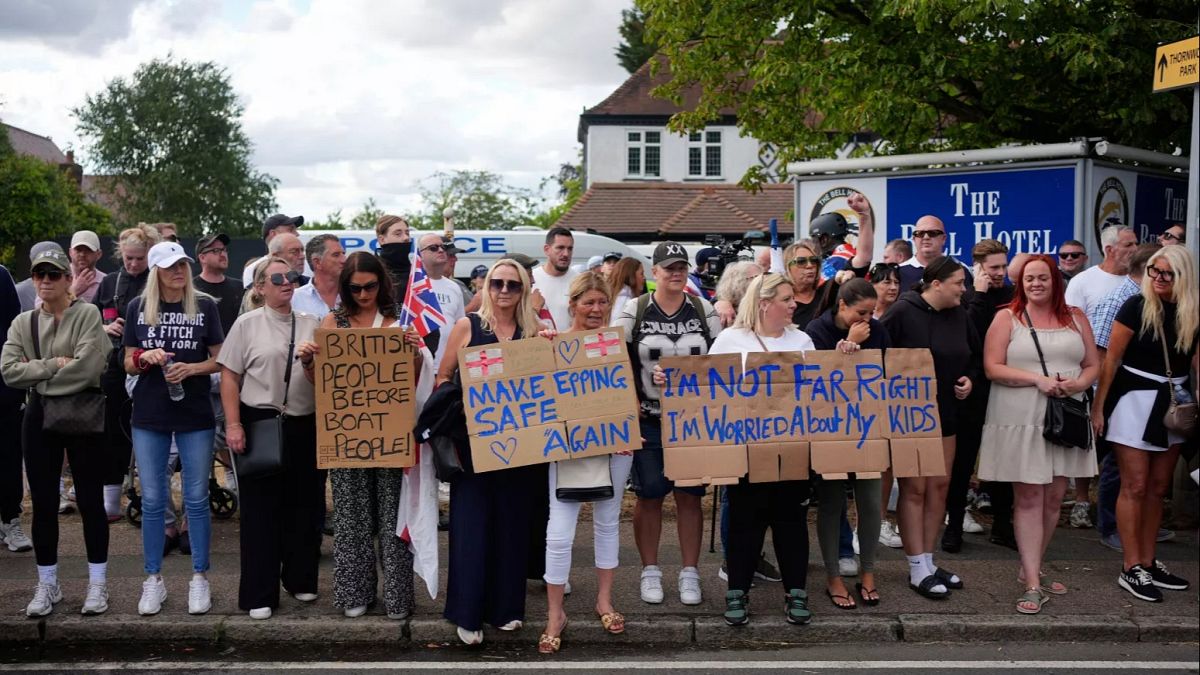

In a world navigating complex socio-political landscapes, recent events have highlighted both ongoing challenges and the pursuit of resolution and justice. From the Middle East to the UK, these stories underscore a diverse range of human experiences and aspirations for peace.
In the UK, a peaceful protest outside the Bell Hotel has brought attention to ongoing debates around asylum seekers. Spurred by concerns for local communities, the demonstration gathered over a hundred participants chanting slogans such as “Save our kids” and “Send them home,” while waving national flags. As night descended, tensions flared, resulting in six arrests and a noteworthy police presence to maintain order. This event underscores the importance of finding compassionate, inclusive solutions that address humanitarian needs while considering community impacts.
Meanwhile, events in Gaza have drawn international concern as Pope Leo XIV condemned the perceived “barbarity” of the conflict. In one of the most somber incidents, at least 93 Palestinians seeking aid were reported killed as Israeli forces opened fire near Gaza City. The escalating violence and fresh evacuation orders reveal the urgency for dialogue and humanitarian assistance in this beleaguered region, emphasizing the need for peace-oriented resolutions that prioritize human lives and dignity.
Efforts to address human rights issues are also underway in Afghanistan, where the family of an elderly British couple held by the Taliban is advocating for their release. Barbie and Peter Reynolds, detained for over five months without charge, have recently become the focus of international appeals for justice. The impending United Nations statement calling for their immediate release highlights the ongoing global commitment to upholding human rights and the importance of international cooperation in conflict resolution.
In more proactive initiatives, UK Prime Minister Keir Starmer has shared his intention to address child poverty, setting a goal to significantly reduce it by the next election. This announcement comes as his administration faces pressure to abolish the two-child benefit cap, a policy with a substantial economic impact estimated at £3.6 billion annually. Starmer’s commitment signals a potential shift towards social policies aimed at alleviating poverty and enhancing the well-being of future generations.
Transformative efforts are also taking shape with the establishment of the British Muslim Trust, a newly appointed body to monitor anti-Muslim hatred in the UK. Following a hiatus in government funding for Tell Mama, this initiative reflects an ongoing commitment to combatting Islamophobia and promoting inclusivity and respect within diverse communities. As the Trust prepares to begin its operations in early autumn, the hope is for more effective monitoring and response to incidents of hate, reinforcing societal values of acceptance and unity.
Taken together, these stories speak to the resilience and agency of individuals and communities worldwide in addressing pressing challenges. Whether through peaceful protests, international condemnations, policy shifts, or new initiatives, these narratives are woven together by a shared aspiration for justice, peace, and a more compassionate global society. As we reflect on these developments, there remains hope for constructive dialogue and concerted efforts toward a brighter, more equitable future for all.
Source: {link}
